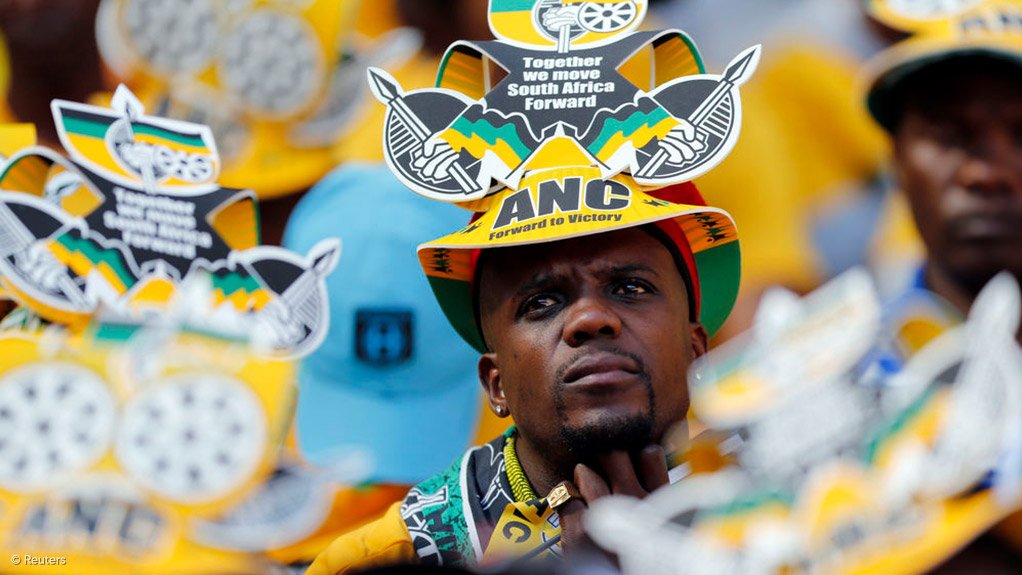The latest election polling data, conducted by Ipsos, shows the African National Congress's (ANC's) prospects ahead of the 2024 elections may not be as dismal as predicted.
The data places the ANC between 48% and 53% nationally at the 2024 elections.
The ANC has, however, shown a considerable decline in support nationally over the past 10 years, with the Ipsos poll placing the party's support at 33% compared to 63% in 2015.
The polling data was conducted on behalf of the Inclusive Society Institute, and it showed that support for opposition political parties had increased from 21% to 48% over the 10 years.
But, despite the ANC's sharp decline in support, the data shows the party may form a government, on its own or in a coalition, at a national level.
A breakdown of the polling data shows outcomes based on three scenarios: high voter turnout at 66%, medium at 43%, and a low turnout at 36%.
This is the biggest poll conducted this year, with 3 600 people nationwide, who were polled in their own languages.
It was undertaken in June and July 2023.
If the turnout were set at 66%, a very generous estimation, the ANC would receive 50%, medium turnout at 48%, and lower turnout at 53%.
The scenarios signify a significant decrease for the ANC compared to the party's 62% in the 2019 elections.
The Democratic Alliance (DA) would receive about 18% in a higher turnout scenario, 20% at a medium, and 16% at a lower turnout.
The figures show the DA would decrease in its electoral performance, compared to the party's 22% in 2019.
The Economic Freedom Fighters (EFF) showed the most significant electoral performance in this survey, with the party placed at 16% for a high turnout, 17% for a medium, and 15% for a lower turnout.
The party managed 10.80% in 2019.
The Inaktha Freedom Party (IFP) averages 4% and 5%, depending on the turnout, while ActionSA, which has never contested national elections, averages 4% on all turnout outcomes.
In the survey, the Freedom Front-Plus appeared at between 1% and 2%.
The bigger picture of the ANC losing considerable control of its dominance is seen in provincial polling data.
Gauteng has the party performing considerably poorly and will likely survive with a coalition partner at 36%.
In the Western Cape, the party sits at 23% and KwaZulu-Natal at 22% - a considerable decrease from its previous support.
The DA polls are at 16% in Gauteng, 44% in the Western Cape, and 13% in KwaZulu-Natal.
The DA had recently estimated that its polling placed the party at 32% nationally.
The EFF is at 15% in Gauteng, and 9% in the Western Cape.
The IFP polls at 17% in KwaZulu-Natal.
ActionSA polls at 12% in Gauteng, 4% in the Western Cape, and 1% in KwaZulu-Natal.
The CEO of the Inclusive Society Institute, Daryl Swanepoel, said the data produced by other surveys had placed the ANC at considerably lower numbers nationally, but this poll considered additional variables, which pegged the party on a higher electoral footing.
"If an election should be held now, it is clear that the ANC should lead the government at a national level because they could get 48% and would need a small party to enable them to become the government lead. The opposition is highly unlikely to form a government.
"There is a lot of talk taking place about coalition government because, in that opposition, there is the EFF which is not going to vote with the DA or the IFP, and will split the opposition in half. So, how can get they get numbers nationally is not possible. In the provinces, it is a different story.
"In Gauteng, the ANC can lead a coalition, if the EFF supports it, and KwaZulu-Natal is wide open," Swanepoel said.
The poll is readjusted with eligible voters and the combination of registered voters.
"We took the polls based on eligible voters and readjusted it to reflect the registered voters as per the IEC. Unfortunately, it suits certain people to say the ANC will get 33%, but that is not the whole story. The full story is complicated; the best estimate is that the ANC receives 48% and 53% nationally," he said.
Previous polls conducted by various organisations had averaged the ANC support at 45% and the DA at 31%, according to data from the Social Research Foundation.
EMAIL THIS ARTICLE SAVE THIS ARTICLE
To subscribe email subscriptions@creamermedia.co.za or click here
To advertise email advertising@creamermedia.co.za or click here











